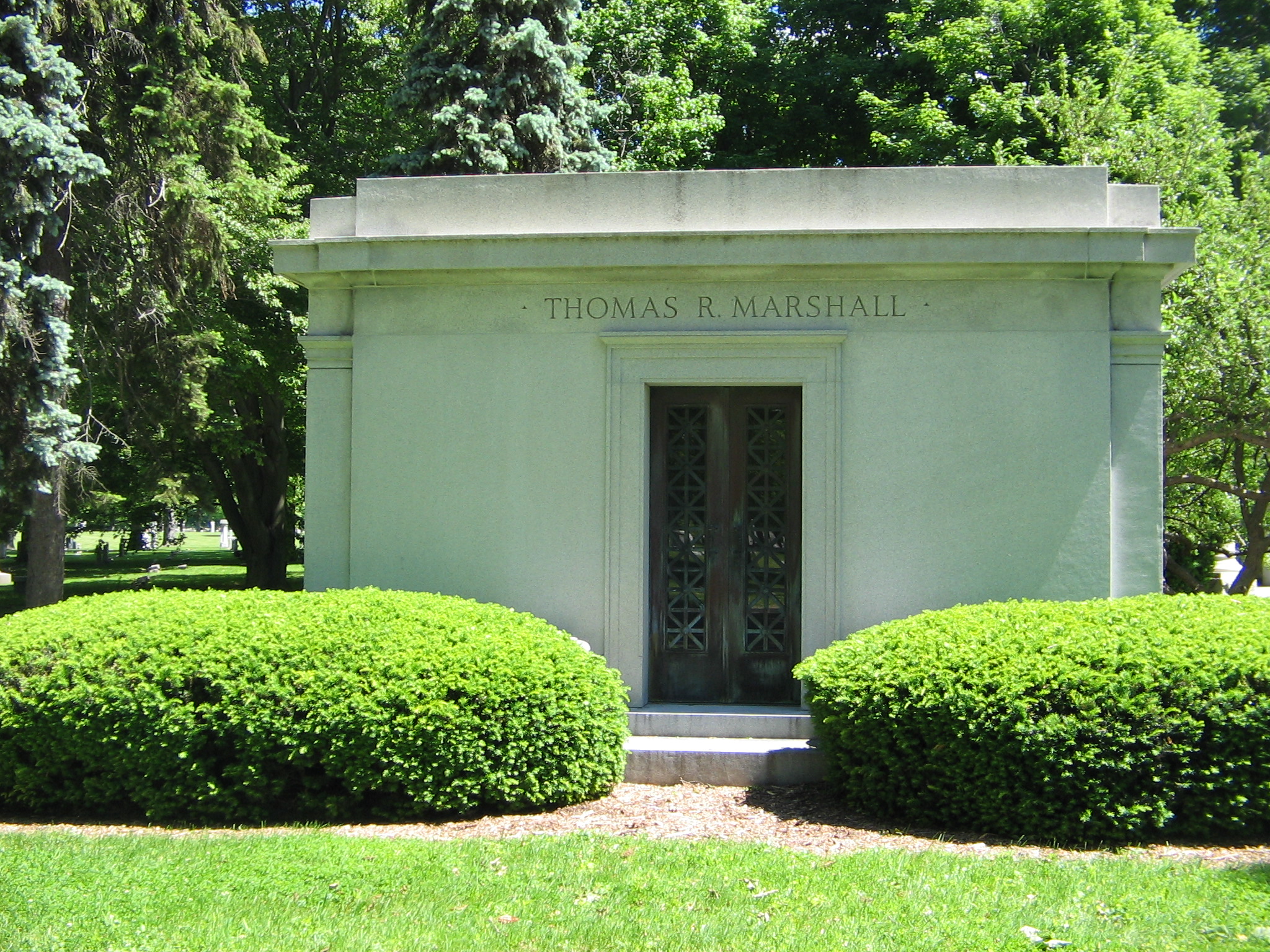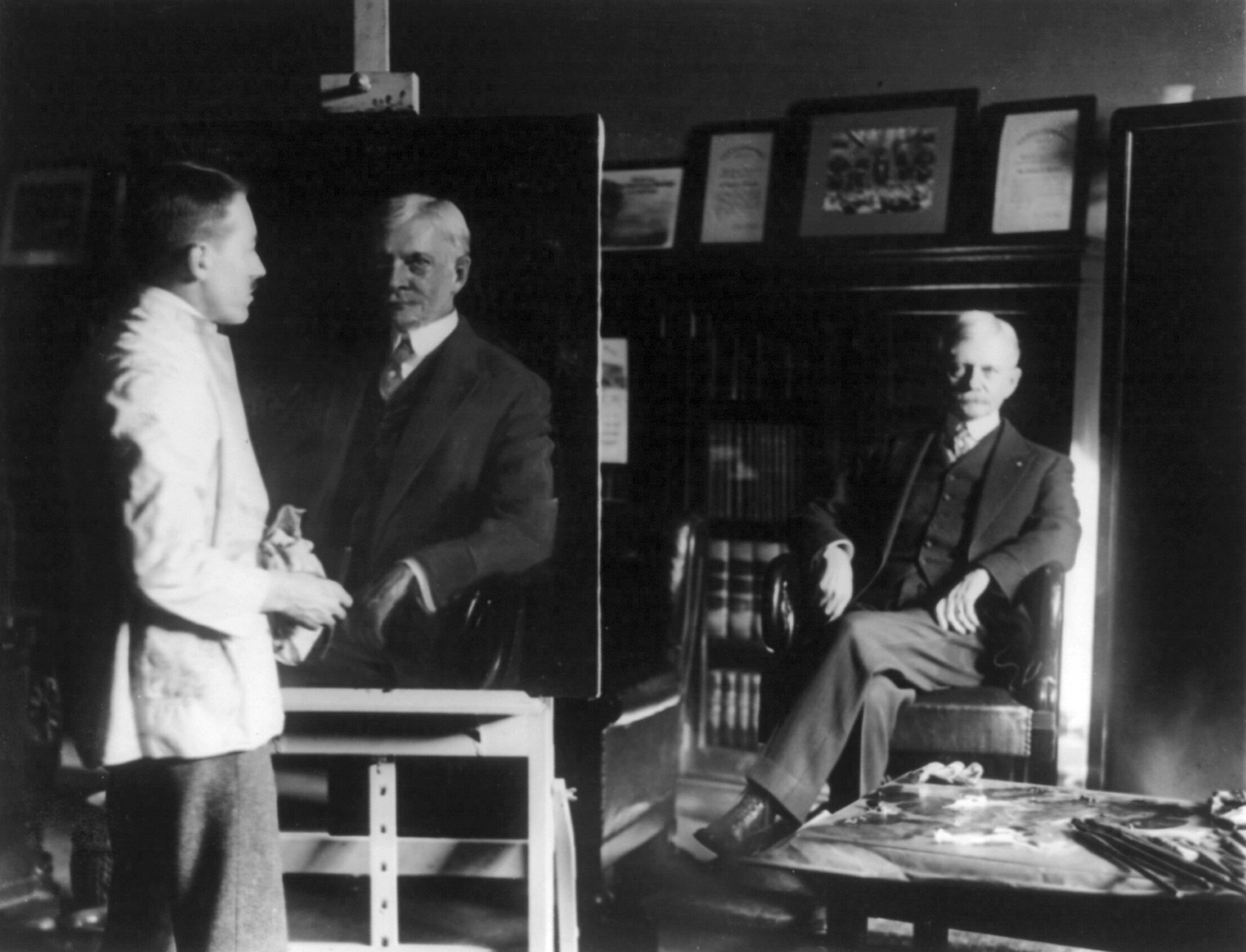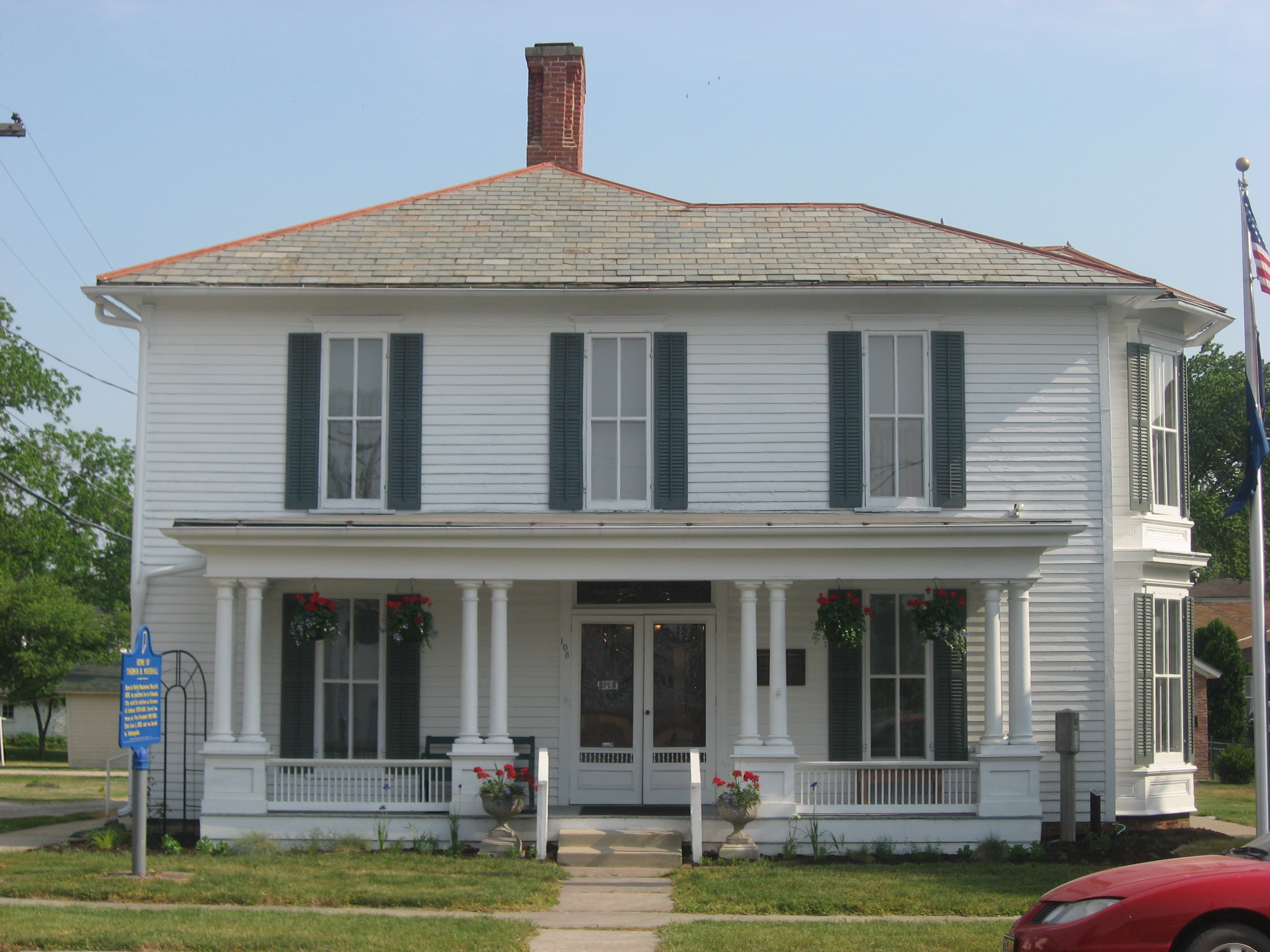Marshall, Thomas R. 1854-1925
Enlarge text Shrink text- NUCMC data from Indiana State Library for Stoll, J.B. Papers, 1854-1926(Marshall, Thomas R.)
- Biog. dir. U.S. Congress, 1989(Marshall, Thomas Riley, 1854-1925; lawyer and politician; U.S. Vice President, 1913-1921; Gov. of Ind., 1909-1913)
Thomas Riley Marshall (March 14, 1854 – June 1, 1925) was an American politician who served as the 28th vice president of the United States from 1913 to 1921 under President Woodrow Wilson. A prominent lawyer in Indiana, he became an active and well known member of the Democratic Party by stumping across the state for other candidates and organizing party rallies that later helped him win election as the 27th governor of Indiana. In office, he attempted to implement changes from his progressive agenda to the Constitution of Indiana, but his efforts proved controversial and were blocked by the Indiana Supreme Court. Marshall's popularity as Indiana governor, and the state's status as a critical swing state, helped him secure the Democratic vice presidential nomination on a ticket with Wilson in 1912 and win the subsequent general election. An ideological rift developed between the two men during their first term leading Wilson to limit Marshall's influence in the administration. Marshall's brand of humor caused Wilson to move his office away from the White House, further isolating him. Marshall was targeted in an assassination attempt in 1915 for supporting intervention in World War I. During Marshall's second term he delivered morale-boosting speeches across the nation during the war and became the first U.S. vice president to hold cabinet meetings, which he did while Wilson was in Europe during peace negotiations. As he was president of the United States Senate, a small number of anti-war Senators kept it deadlocked by refusing to end debate. To enable critical wartime legislation to be passed, Marshall had the body adopt its first procedural rule allowing filibusters to be ended by a two-thirds majority vote—a variation of this rule remains in effect. Marshall's vice presidency is most remembered for a leadership crisis following a stroke that incapacitated Wilson in October 1919. Because of their personal dislike for Marshall, Wilson's advisers and wife Edith sought to keep him uninformed about the president's condition to prevent him from assuming presidential powers and duties. Many people, including cabinet officials and congressional leaders, urged Marshall to become acting president, but he refused to forcibly assume Wilson's powers, not wanting to set a standard of doing so. Without strong leadership in the executive branch, the administration's opponents defeated the ratification of the League of Nations treaty and returned the United States to an isolationist foreign policy. Marshall ended his time in office as the first vice president since Daniel D. Tompkins, nearly a century earlier, to serve two full terms, and the first vice president re-elected, since John C. Calhoun. Marshall was known for his wit and sense of humor. One of his most enduring jokes provoked widespread laughter from his Senate colleagues during a floor debate. Responding to Senator Joseph Bristow's catalog of the nation's needs, Marshall quipped that, "What this country needs is a really good five-cent cigar." After his terms as vice president, he opened an Indianapolis law practice where he authored several legal books and his memoir, Recollections. He continued to travel and speak publicly. In 1925, Marshall died following a heart attack while on a trip to Washington, D.C.
Read more on Wikipedia >
 Personality
Personality












